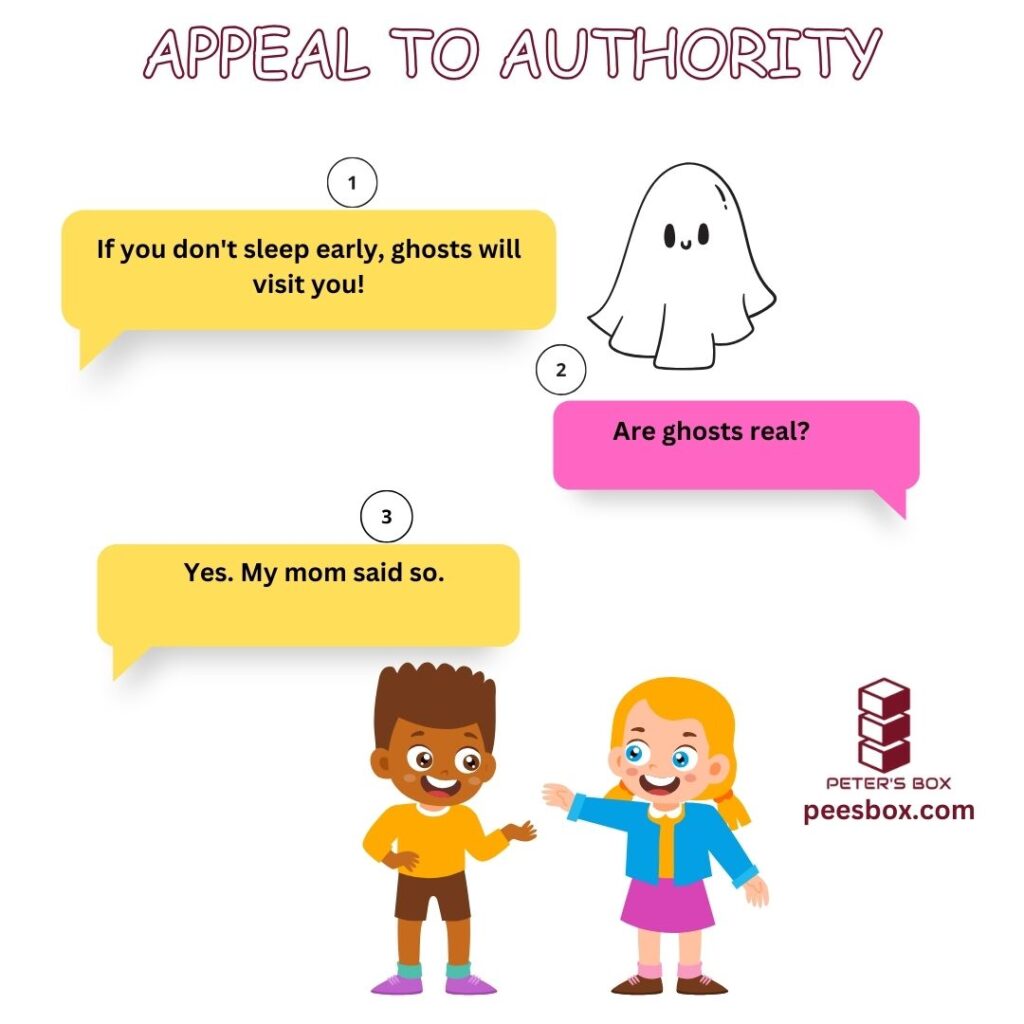I have witnessed a few instances over the past couple months where someone used the ‘appeal to authority fallacy’ to dismiss someone’s claim. Usually, it was someone who wanted to not feel irrational holding something to be true that a consensus of experts disagreed with. When this was pointed out, they just fell back on ‘appeal to authority fallacy.’ I believe this is a misunderstood and potentially dangerous application of logic.
The first thing I would like to say is that just yelling ‘fallacy’ and throwing a label on it does not automatically make it illogical. You need to be able to explain both what the fallacy means and show that it specifically applies to the case in question. If you cannot do both of these, then by using the word fallacy, you are the one who is attempting to stifle rational discourse.
If you are someone on the receiving end of this, a good way to handle it is to just start asking questions. What does that mean? Why do you think that? How does what you are doing not commit the same problem? The last question deals more with hypocrisy, but can be a good litmus test to see whether the person actually cares about logic or is only using it when it seems to confirm what they want to believe.
Now, to be clear, the appeal to authority is a real problem and is used ALL the time, especially in advertising. The graphic below is a very basic example of this.

Just because an authority figure in your life tells you something, that doesn’t make it true – obviously! Also, someone could be an authority with respect to one claim, but not another related one. Again, this should be rather obvious.
I believe that appealing to valid authority is the appropriate and, dare I say, morally responsible thing to do most of the time. The natural question is: what is a valid authority? First, this is NEVER a single person, except for the remote possibility that they are the only expert in a given subject both past and present. No, what I consider a valid authority is a CONSENSUS of ‘experts.’ To me, what this means practically is: greater than 90% agreement by PhD scientists and peer-reviewed researchers in the field of study.
If you didn’t appeal to ANY authority (even the valid ones), that would mean in order to accept or believe anything, you would need to personally do all the experiments and research yourself. While I applaud someone who genuinely desires to do this, to make this a requirement of valid belief robs us of the ability to assimilate large amounts of information quickly by standing on the shoulders of all the giants that came before us. This frees us up to pursue new avenues of knowledge and personal growth, instead of continually reinventing the wheel.
I want to clarify an important distinction between belief and acceptance. We use a range of words to denote the level of confidence we have in a belief. ‘I know’ is stronger than ‘I believe’ which has more oomph than ‘I think’ which trumps ‘I feel.’ However, acceptance is on a completely different axis, or is at least operating from a different level. Namely, it communicates alignment with expert consensus on a particular topic.
For example, I accept a lot of things: anything where there is a greater than 90% agreement on among experts, in subjects where I am not an expert myself (which is pretty much every subject). This includes the spherical earth theory, the germ theory of disease, the theory of evolution, the general theory of relativity, etc. I listed scientific claims, but the same applies to historical claims as well. Some of these I would say I know are true; others I would say I feel are true, but all of them I accept to be true because doing so only requires I can show there is consensus, not that I can actually provide specific proofs as to their legitimacy.
In the norm, I don’t think any of what I said is controversial. It only becomes so when someone is confronted with something they REALLY WANT to be true but a consensus of experts disagree with them. Then, suddenly, authority doesn’t matter at all! The appropriate question to these people then becomes, why do you believe in a conspiracy? Because that is exactly what it is.
Now, maybe there is good evidence of a conspiracy in a particular case which would invalidate the consensus, and if they can provide that – fantastic! But if not, don’t get sucked down the ‘What about this?” or “You can’t explain that” trap. In all likelihood, whatever evidence you could provide wouldn’t convince them anyway, since the real motivation for almost all beliefs IS appeal to authority. It just so happens that, in these cases, it is an invalid authority (e.g. “Half the population believes this” or “These 100 scientists agree on this”), and thus a genuine logical fallacy.
You can waste a lot of time researching things that don’t really benefit your life in any tangible way. If it is your job to do so, then that is a different story, and if that is you, more power to you on your journey of discovery! For the rest of us, trust the experts (not individuals but the consensus, assuming there is one), release your attachment to knowing, and embrace the myriad of things you can do right now that CAN greatly enrich your life and be a blessing to those around you… like standing on your head counting marbles, or petting dolphins on the moon. 😎
Namaste.